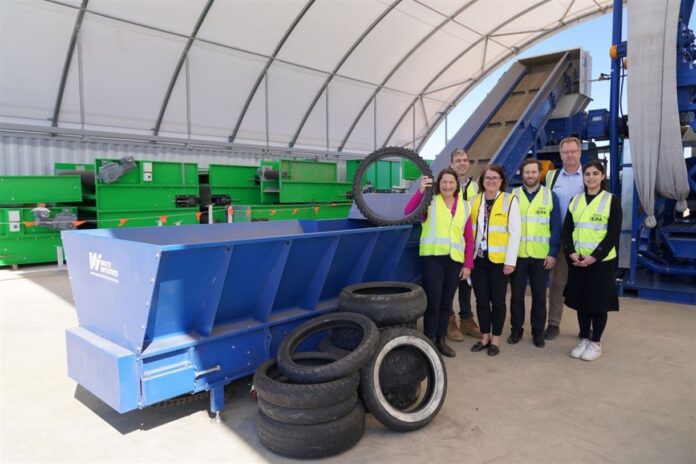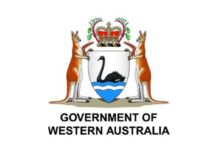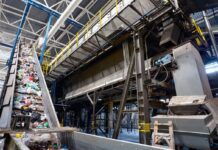
Tyres once destined for landfill are now being repurposed for use in road paving, artificial turf, and children’s playgrounds at Australia’s first rubber crumb plant, located in the Shoalhaven region, as revealed in a news release.
Federal Member for Gilmore, Fiona Phillips, officially inaugurated the rubber crumb plant at Shoalhaven City Council’s West Nowra Recycling and Waste Depot on Thursday, 19 September.
“I’m really pleased to open this innovative recycling project, which contributes to council’s circular economy and provides a very practical solution to tyre waste,” said Phillips.
The plant received a $514,000 grant, co-funded by the Federal Government’s Recycling Modernisation Fund (RMF) and the NSW Government’s Waste Less, Recycle More initiative.
The funding has allowed the plant to not only reduce tyre waste but also transform it into a valuable resource for local infrastructure projects.
“This facility is a fantastic example of the kind of innovation we need to boost recycling in Australia,” Phillips added.
“Not only is this great for the environment by saving used car, truck, and machinery tyres from going into landfill, we are also creating a product that is really useful.”
The rubber crumb plant is designed to process waste tyres into crumbed rubber and mesh powder, which can be used in a variety of local projects, including roads where it will be incorporated into asphalt and bitumen.
The facility is expected to dramatically increase Shoalhaven’s recycling capacity, allowing the council to process up to 160 tonnes of waste rubber annually, with potential to reach 270 tonnes in the future.
The crumbing technology used in the plant removes 99% of all contaminants, resulting in a high-purity product that is in demand within the recycled products market.
This initiative aligns with the NSW Government’s goal to achieve an 80 per cent average recovery rate from all waste streams by 2030.
In addition to the rubber crumb plant, Shoalhaven City Council is also running several other recycling projects, including a MICROfactorie that re-manufactures recycled glass sand and textiles into green ceramics, a polystyrene recycling operation, and facilities for baling paper, cardboard, plastics, and electrical cables.
Phillips also highlighted that the RMF is driving the shift towards a circular economy in Australia, ensuring that when a product is no longer needed for its original purpose, it is either reused, recycled, or remanufactured.
According to her, the Shoalhaven rubber crumb plant is part of a broader effort to expand recycling infrastructure across the state.
“The Shoalhaven rubber crumb plant is one of 43 RMF projects in NSW, with more than $35 million in joint funding between the Australian and NSW Governments,” remarked Phillips.
“On completion, these projects are expected to add 197,000 tonnes of recycling capacity each year, support over 790 ongoing and construction jobs, and see over $122 million invested in recycling infrastructure in the state,” she concluded.



















